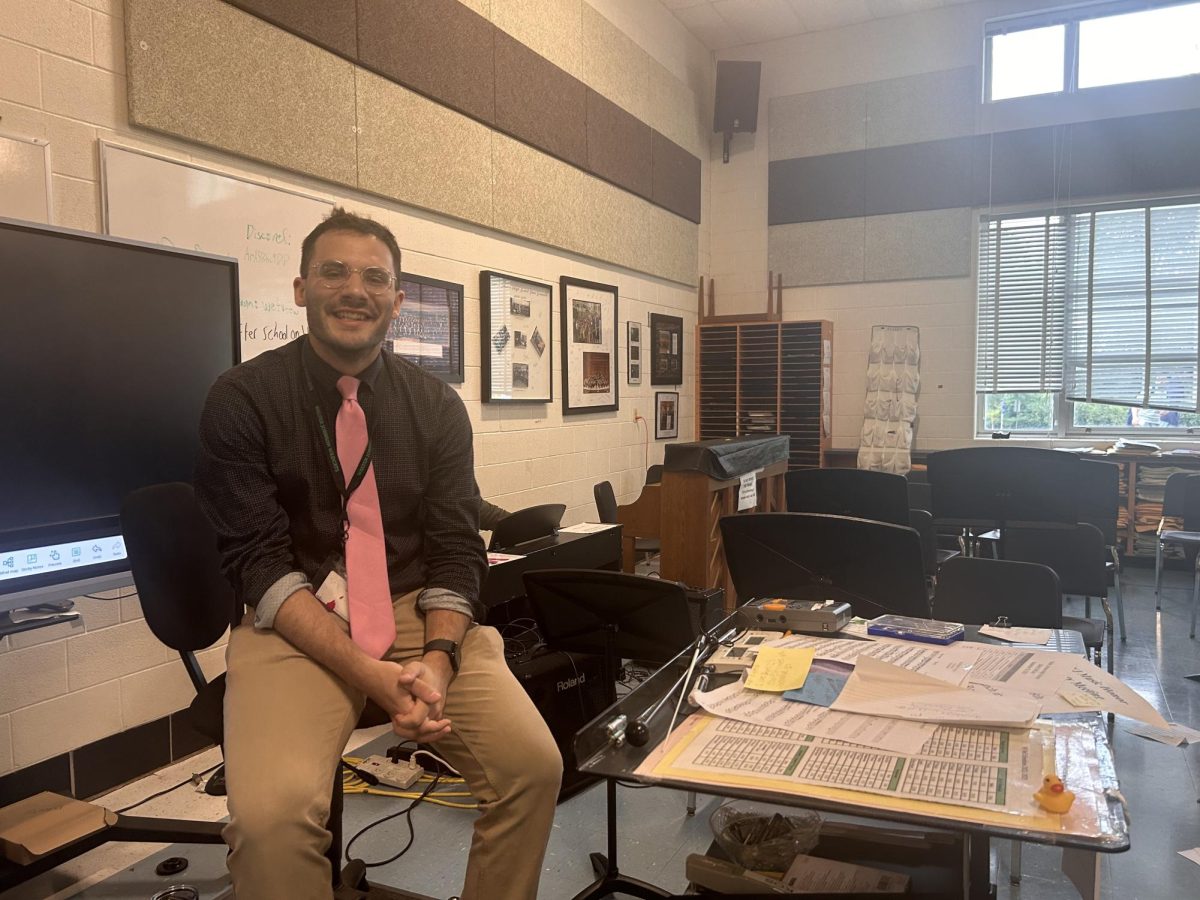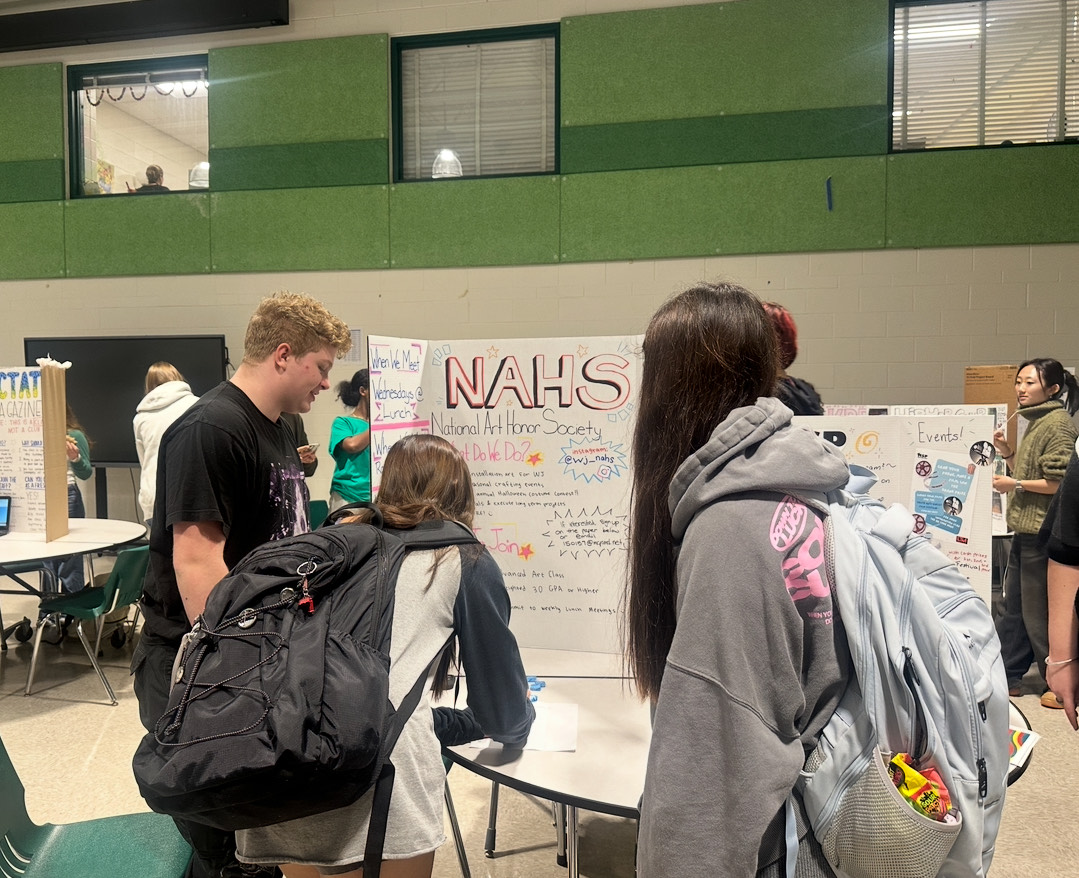You hear it from behind you, the heavy breathing, the close to crying whimpering, the frantic sound of fingers on a phone keyboard asking a parent to go home. It’s the kid behind you in math class, the stressed one who gets like this every time before a test. This is not an unusual classroom scene. Students with anxiety, or even students without diagnosed anxiety have to contemplate whether or not to stay in class as their mind is racing and heart is beating faster than ever. But the truth of the matter is that every teacher was once a high school student – staying up late writing essays and studying for tests. Teachers and parents are not strangers to how hard it is to manage everything and they want to be a support for students whether they show it in those panic attack moments or not. .
Jamie Grimes is a science teacher and swim coach at Walter Johnson. He has helped his students with stress and hopes that they know their limits for the amount of stress they take on.
“I think students need to be realistic when they sign up for classes in terms of what they can and can’t handle,” Grimes said.
Students all have similar stresses and worries that make an impact on their lives. Counselor Dennis Reynolds wants students to be cautious about what their stresses are and the toll they take on their lives.
“Academics, future plans, friends and parents are the most common stresses among students. Students should identify what’s causing the stress and harness it. Identify what the source of your stress is and figure out what you can and can’t control,” Reynolds said.
While students are often spotlighted for dealing with anxiety and stress, a lot of adults are dealing with the same types of issues as well. WJ yoga teacher Sheila Hill feels stressed sometimes but knows exactly what to do when she begins feeling overwhelmed.
“I normally exercise and listen to music. I also try to go out and enjoy nature,” Hill said.
Many students also don’t realize how their stress impacts the teachers. It is their job to make sure the student is learning in the best way possible. Being overwhelmed and stressed is not their goal when teaching. Hill is very passionate about her students and wants the absolute best for them.
“It makes a big impact on me because it is my number one concern and my job to relieve the stress however I can,” Hill said.
Coping with stress is essential for students. Whether that means going outside, playing a sport, taking less challenging courses or spending time with family and friends, it is extremely important for students to know what to do when they are feeling overwhelmed. The smallest things can make the biggest difference.
“Students need to have an outlook and know what their triggers are for stress. Going to bed on time and getting off their cell phones will help them,” Grimes said.
WJ is aware of the issues students face and is very open and willing to help students relax in any way possible. This year, WJ is starting their first ever Wildcat Wellness period. It is 42 minutes of study hall where students can either rest, study, or prepare for school in any way needed. Principal Jennifer Baker is very involved and is excited for this new plan to be added to the schedule.
“The Health and Wellness Committee has been meeting during lunches and after school to make this new program. We are giving the gift of time to the students. We have been talking about this since October and it is finally going to come to fruition so I am super excited! ” Baker said.









